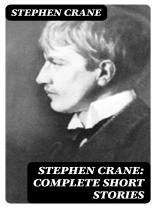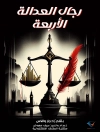Stephen Crane: Complete Short Stories showcases a remarkable body of work that captures the essence of human experience against the backdrop of the late 19th-century America. Renowned for its vivid imagery and pioneering use of naturalism and impressionism, this collection presents stories that delve into themes of war, survival, and the complexities of human emotion. Crane’s masterful prose is marked by its brevity and poignant symbolism, reflecting the existential struggles faced by his characters. Through innovative narrative techniques, he paints a stark portrait of life that transcends time and resonates with readers today. Stephen Crane, an eminent figure in American literature, was profoundly influenced by his own experiences as a war correspondent and the tumult of the Civil War. Born in 1871, Crane’s short, yet impactful career was characterized by a deep empathy for the human condition. His explorations of fate, desire, and the inner workings of the human psyche stem from a rich tapestry of historical and personal narratives, all of which are evident in this comprehensive collection of short stories. Crane’s understanding of the gritty realities of life informs his poignant storytelling, making his work timeless. Given its rich thematic depth and stylistic innovation, Stephen Crane: Complete Short Stories is essential reading for anyone interested in American literature and the short story form. This collection not only showcases Crane’s literary genius but also invites readers to engage with profound existential questions shaped by society’s tumultuous landscape. It is a compelling journey into the heart of humanity that should not be missed.
O autorze
Stephen Crane (1871-1900), an American novelist, short story writer, poet, and journalist, was a pioneering figure in modern American literature. Hailed for his innovative style and realistic, often gritty depictions of life, Crane helped to shift American narrative fiction toward naturalism. Despite a brief career curtailed by his untimely death at 28, Crane produced works of enduring significance. He remains most famous for his Civil War novel, 'The Red Badge of Courage’ (1895), which won international acclaim for its powerful rendering of a soldier’s psychological turmoil. His narrative techniques anticipated the 'stream of consciousness’ method that would become prominent in the 20th century. Crane’s short stories are equally commendable, showcasing a talent for vivid imagery and concise language. The 'Stephen Crane: Complete Short Stories’ brings together his compact yet evocative tales that traverse themes of humanity, courage, and the complexities of social life. His stories often dealt with ordinary people facing extraordinary circumstances, and his journalistic experience provided a factual foundation for the often dark, impressionistic tone conveyed in his literature. Crane’s work was cut short by his early death from tuberculosis, but his influence endures in the American literary canon, with critics applauding his ingenuity and psychological depth.












